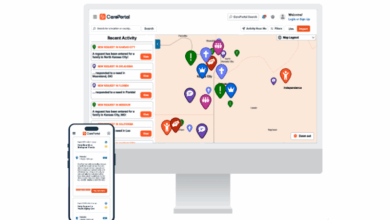AI a powerful tool for evangelicals – if they understand it

Evangelical opinions about artificial intelligence run the gamut from a powerful new ministry tool to a sign of the end times. The reality is that, much like the internet or social media, AI is neutral technology that can be put to positive or negative uses, depending on who is behind it.
“Evangelicals need to realize it is a tool they can advocate or they can engage,” said Mark Dreistadt, president and CEO of Infinity Concepts, a branding communications agency near Pittsburgh. “My position is that if a tool can make a difference in the society and culture in which we live, let’s engage it for Christ. Let’s engage it with a biblical worldview and do what we can to harness it for the kingdom’s sake.”
Infinity Concepts recently cosponsored “Artificial Intelligence: An Evangelical Perspective,” a study that surveyed more than 1,000 evangelical Christians. Any discussion of AI must begin with a definition of terms.
“Artificial intelligence is an aggregated knowledge tool,” Dreistadt told “Metro Voice.” “It is not sentient knowledge that makes its own decisions on human rationale, but rather it’s a huge collection of data all in one place so you can access it and provide all kinds of services, because so much data are gathered in one place and are readily accessible. It is not thinking on its own but simply responding to the prompts and inputs that someone who is thinking puts into it. It simply provides rapid responses to huge amounts of data.”
READ: Christians grapple with proper role of AI
One key finding from the survey is that evangelical opinions vary widely on AI, just as they do on many issues.
“We determined that evangelicals are split into three groups,” he said. ”A third of them know a lot about AI, another third have read a little and know a bit about it and a third group really doesn’t know enough to speak about it at all. One thing we have learned about the evangelical marketplace is that they are not a monolithic group. There is great diversity of opinion among the evangelical community.”
There also are significant differences of opinion about the influence of AI.
“About 25 percent see AI as positive, 28 percent find it neutral, 38 percent see it as negative and 9 percent say they don’t have enough information to have an opinion,” Dreistadt said. “So there is concern within the evangelical community, but I think much of that has to do with the lack of knowledge. We found that the more people know about AI, the more positively they feel about it.”
Although AI does an impressive job of improving efficiency and proficiency, the results it delivers may not always be accurate.
“We started working with AI at our agency a year ago and learned that it’s not always trustworthy to produce accurate data.,” he said. “You always have to do fact checking, because it is pulling the data that have been loaded in. That being said, it’s tremendously helpful on many levels. It gives you a great amount of context in a short period of time. From there, a human can decipher what is good or bad and right or wrong.”
It also has a secular bias, at least at this stage of development.
“Part of the challenge of the existing large-language models, such as ChatGPT, is that they are secular and not operating from any particular worldview,” Dreistadt said. “Consequently, it often reflects a bias and may not align with a biblical worldview. In answer to that, a couple of companies are trying to develop a biblically based model. The challenge is that although the Bible is the Bible, there is a broad range of interpretations of scripture. One company has been working with one of the Lutheran churches to develop a Lutheran-doctrinal model of AI, for example. These are all experimental at this point.”
The bottom line is that AI is here to stay, and evangelicals can enjoy its benefits if they remember to put humans above machines.
“If AI is a productive tool that can be used, then use it in a healthy, productive and positive manner,” he said. “It is a way of aggregating data in a very quick way. Don’t be afraid of the tool, but use it in a way that has integrity. It’s always a human touch at the end of the process.”
–Dwight Widaman | Metro Voice






